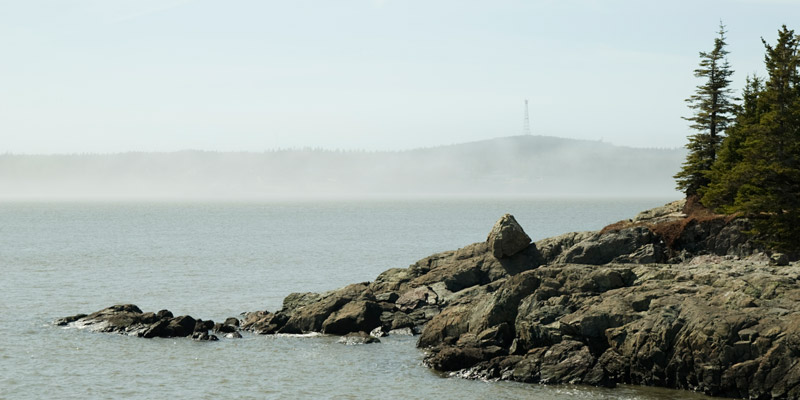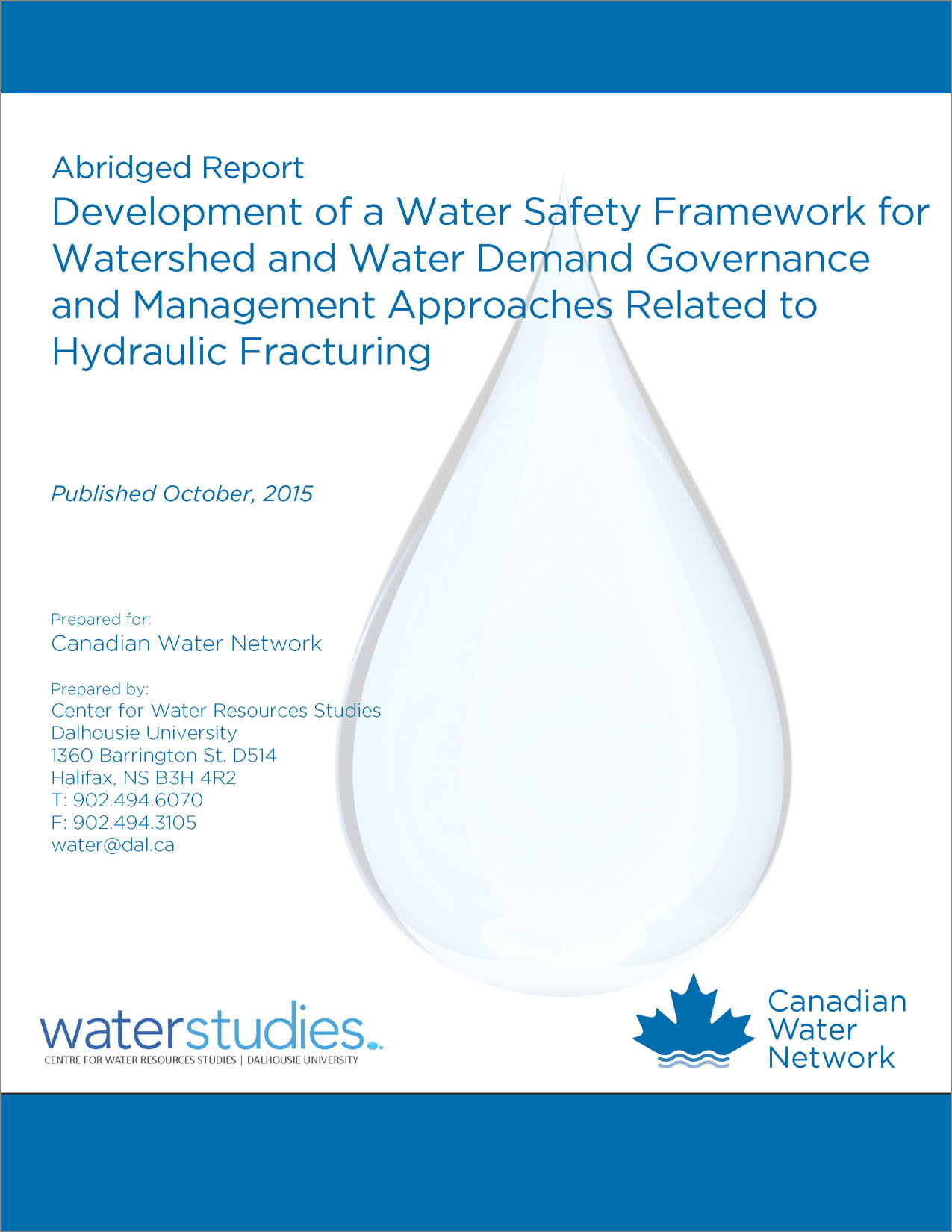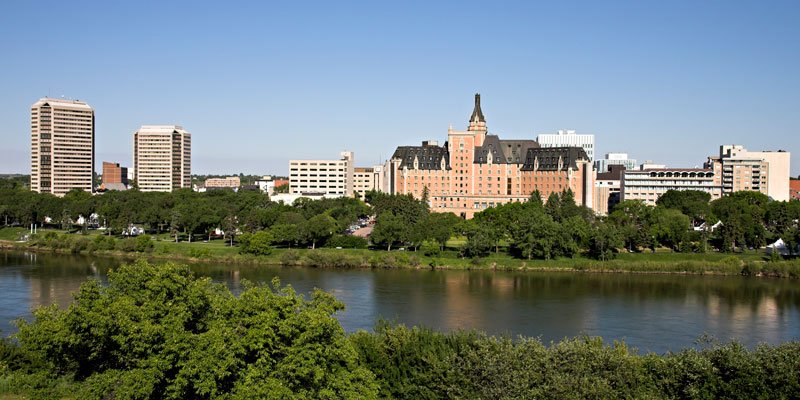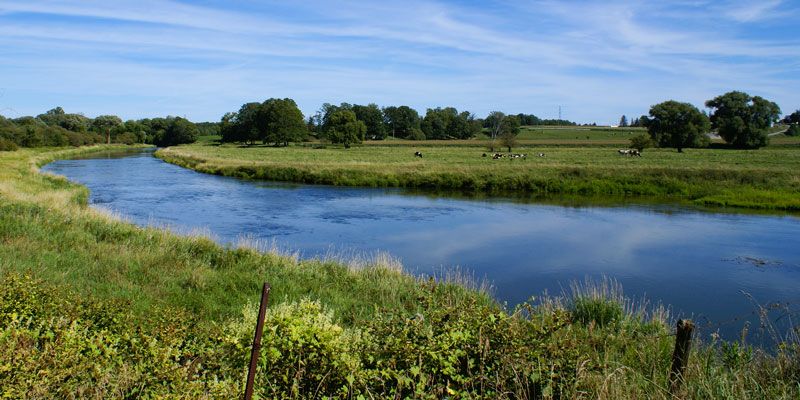Development of a Water Safety Framework for Watershed and Water Demand Governance and Management Approaches Related to Hydraulic Fracturing
Graham Gagnon, Professor, Dalhousie University (2014-2015)

Challenge
The energy sector is increasingly looking toward hydraulic fracturing for resource extraction to meet future energy needs. As an emerging technology, greater understanding is required to bridge the knowledge gap between decision-makers, researchers, neighbouring communities and the general public. This is particularly the case regarding water use in the hydraulic fracturing process. Hydraulic fracturing requires a huge volume of water and uses a number of harmful chemicals. Given that a low proportion of the fluid used is recovered, it is expected that large volumes of waste fluid are being left in the ground; while in other operating scenarios, the recovered fracturing fluids are brought to the surface and left to evaporate from retention ponds. The complexity of water needs and waste from hydraulic fracturing strongly influence governance requirements and the concerns of neighbouring communities. Thus, an approach that allows for analysis of the risks and informs the public of choices and governance models is needed. To address this, the research team integrated leading international research into a Water Safety Framework for hydraulic fracturing to address knowledge gaps within watershed and water use governance and demand management approaches.
Project
The research team integrated leading international research from relevant disciplines to meet the following four objectives:
- A summary of current research approaches and knowledge
- Identification of key knowledge gaps that are clearly articulated as priorities for decision-makers
- Presentation of the range of practical research approaches that could be used to address these priority knowledge gaps
- Discussion on the potential strengths and weaknesses of the identified research approaches for informing decision-making knowledge gaps in the Canadian context
The first task involved a desktop literature review of relevant technical papers, and information sharing with colleagues internationally, to ensure a solid understanding of approaches used and concerns in other countries. Particular attention was given to the social science and governance aspects of hydraulic fracturing and water knowledge. Once this task was completed, the project team traveled to Boulder, Colorado for a workshop to establish a comprehensive understanding of the current state-of-science in the United States. A knowledge translation session was hosted with Elders from Elsipogtog First Nation in New Brunswick to gain an appreciation for the First Nation perspectives on the value and sacredness of water, and how hydraulic fracturing can impact these principles and values. Integrating this information, the project team developed a path forward using a risk management framework, structured similarly to a Water Safety Plan, which will inform the public about choices and governance models.
Outputs
- Literature review: 6-7 student white papers, covering a range of topics, including: existing hydraulic fracturing practices; hydraulic fracturing risk assessments; governance approaches to watersheds; structure and content of water safety plans; water quality and treatment of produced water from hydraulic fracturing; identification of general water use; and, demand management approaches
- State-of-science workshop: will provide an opportunity to present current findings, discuss the knowledge gaps that should be prioritized, and offer recommendations as to what actions should be taken as hydraulic fracturing becomes more widespread
- First Nation community workshop: will impart indigenous knowledge to researchers concerning the value of water, challenges faced by the community, and concerns over resource extractions
- Final report: will incorporate knowledge gathered in the literature review, communication with international colleagues, the state-of-science workshop, and the First Nations community workshop
- Definition of optimal and acceptable performance and management requirements of resource extraction, economic opportunities, and water management
- Identification of opportunities for improvement in relationships with aboriginal groups and improve productivity in problem resolution through data and information exchange
Outcomes
- Increased understanding of approaches used in other countries in relation to hydraulic fracturing
Key outcomes of the First Nation community workshop included:
- Enhanced interaction among the community, the project team and other stakeholders
- Greater awareness and understanding of the value of Indigenous perspectives of water





